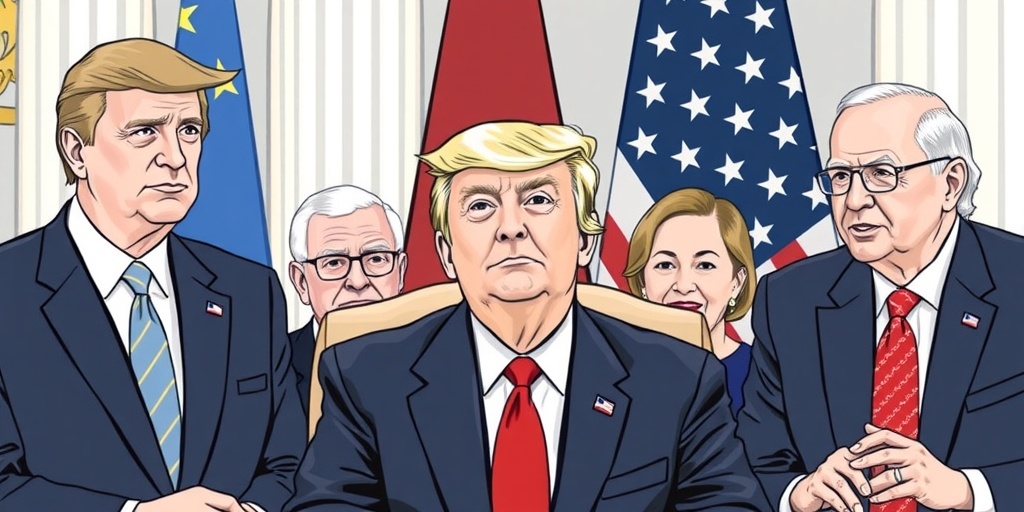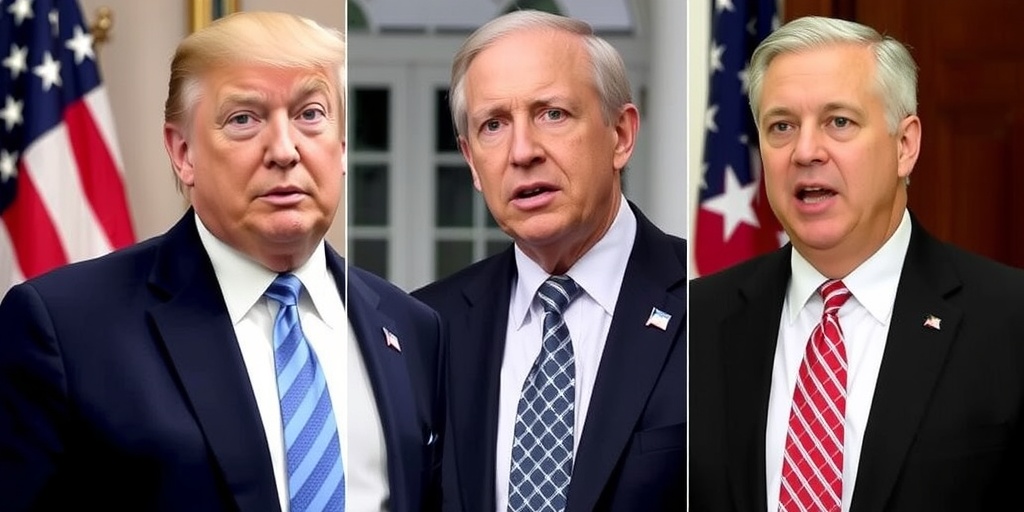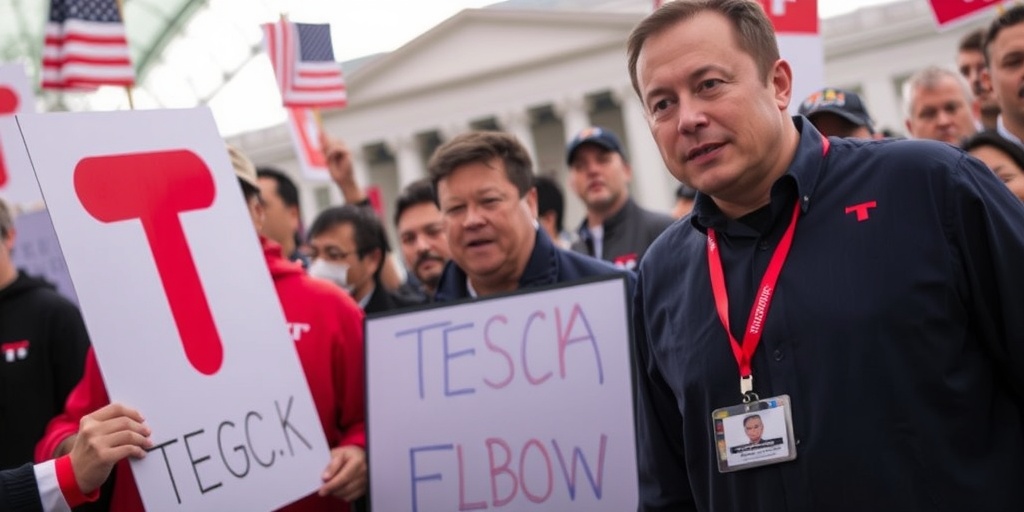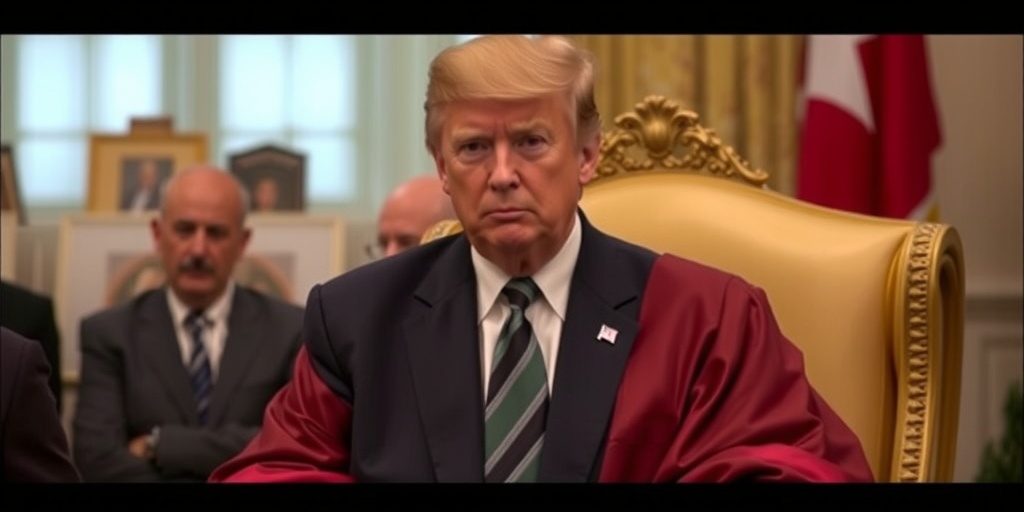Now Reading: 8 Fired Inspectors General Sue for Reinstatement
-
01
8 Fired Inspectors General Sue for Reinstatement
8 Fired Inspectors General Sue for Reinstatement

Former Inspectors General File Lawsuit Against Trump Over Illegal Firings
In a significant legal move, eight former inspectors general who were abruptly dismissed by President Donald J. Trump last month have filed a lawsuit seeking a court ruling to declare their terminations illegal and compel their reinstatement. The group asserts that their dismissals violated federal laws specifically designed to protect inspectors general from any form of political interference in their crucial, nonpartisan responsibilities.
The lawsuit claims that the manner in which the inspectors general were removed was in direct violation of the Inspector General Act of 1978, which was further reinforced by the bipartisan Securing Inspectors General Act of 2022. According to the statute, the president is required to provide Congress with a 30-day advance notice before terminating an inspector general, along with a written explanation that includes detailed and case-specific reasons for the removal. The plaintiffs argue that the abrupt nature of their firings breached these legal requirements.
In their legal complaint, the former inspectors general highlighted that they still hold their positions legally, as the firings were conducted unlawfully. They are asking for an injunction that would mandate their return to their respective offices, along with compensation for lost wages during the period of their dismissal.
Within days of Trump re-assuming the presidency, the White House sent out terse emails to as many as 17 inspectors general, notifying them of their termination on the grounds of “changing priorities.” This swift action raised concerns regarding the apparent disregard for established protocols that govern the removal of inspectors general, thereby calling into question the legality of such decisions.
The group of plaintiffs includes prominent figures like Robert P. Storch, who served as the inspector general for the Defense Department; Michael J. Missal from Veterans Affairs; Christi A. Grimm of Health and Human Services; and several others from various federal agencies. They expressed deep concerns about the implications of their unlawful firings, with Mr. Missal stating, “The firing of the independent, nonpartisan inspectors general was a clear violation of the law.” He emphasized their collective aim to return to work and continue their mission of fighting fraud, waste, and abuse on behalf of American taxpayers.
Moreover, it has come to light that in a separate incident, Trump dismissed another inspector general, Paul K. Martin, the day after he published a critical report regarding the impacts of the administration’s freeze on foreign aid spending. Mr. Martin’s findings revealed that approximately $489 million worth of food assistance was jeopardized as a result of the policy, risking spoilage and incurring unexpected storage costs. He also pointed out that a program intended to prevent the diversion of humanitarian aid to terrorists was rendered ineffective.
Similar to the earlier dismissals, Mr. Martin’s termination took place via a brief email from the White House and was not preceded by legally mandated notification to Congress. The lawsuit notes that despite the apparent illegality of these firings, the affected inspectors general have faced significant barriers in executing their responsibilities; access to their government email accounts, work computers, identity badges, and other essential resources has been revoked.
The legal action emphasizes that these measures have been designed to inhibit the inspectors general from fulfilling their lawful duties. The complaint asserts that since the firings were illegal and thus considered a nullity, the subsequent actions taken to block access to vital work resources constitute illegal interference with their official roles.
The former inspectors general are being represented by a legal team from the prominent law firm Wilmer Hale, with the complaint signed by Seth P. Waxman, who served as solicitor general during the Clinton administration. This legal battle marks a critical moment in the ongoing discussion about the safeguards meant to ensure the independence of inspectors general and the integrity of oversight functions within federal agencies.
As the lawsuit unfolds, the implications for both the former inspectors general and the Trump administration could be significant, raising questions about the accountability mechanisms in government and the protections afforded to officials tasked with ensuring transparency and ethical operations within federal agencies. The outcome of this case could potentially set important precedents regarding the legality of executive actions concerning oversight officials in the future.
Stay Informed With the Latest & Most Important News
Previous Post
Next Post
-
 01New technology breakthrough has everyone talking right now
01New technology breakthrough has everyone talking right now -
 02Unbelievable life hack everyone needs to try today
02Unbelievable life hack everyone needs to try today -
 03Fascinating discovery found buried deep beneath the ocean
03Fascinating discovery found buried deep beneath the ocean -
 04Man invents genius device that solves everyday problems
04Man invents genius device that solves everyday problems -
 05Shocking discovery that changes what we know forever
05Shocking discovery that changes what we know forever -
 06Internet goes wild over celebrity’s unexpected fashion choice
06Internet goes wild over celebrity’s unexpected fashion choice -
 07Rare animal sighting stuns scientists and wildlife lovers
07Rare animal sighting stuns scientists and wildlife lovers





















